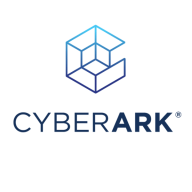

CyberArk Endpoint Privilege Manager and Deep Instinct Prevention Platform compete in the endpoint security market. CyberArk is preferred for its advanced security and privileged access control, while Deep Instinct is notable for ease of use and high malware detection rates.
Features: CyberArk Endpoint Privilege Manager includes password management, session recording, and application whitelisting, providing comprehensive credential management and user activity monitoring. Deep Instinct uses a deep learning algorithm, ensuring high accuracy in threat detection with minimal false positives on a platform suitable for various devices.
Room for Improvement: CyberArk could improve its user interface consistency, policy configuration, and integration with different operating systems, while addressing performance and support response issues. Deep Instinct could enhance its forensic capabilities, logging detail, and administration interface, while expanding Linux support and refining reporting features.
Ease of Deployment and Customer Service: CyberArk is available for hybrid and cloud deployments but may require complex setup and certification, which can affect support response times. Deep Instinct, with on-premises and cloud options, is praised for straightforward deployment and responsive support, though some manual deployment processes could be made more efficient.
Pricing and ROI: CyberArk is a premium solution with a high price justified by robust features and integrations, providing ROI through enhanced security posture. Deep Instinct offers competitive pricing that scales well, with nonprofit pricing advantages, and delivers ROI through effective threat prevention.


CyberArk Endpoint Privilege Manager, a critical and foundational endpoint control addresses the underlying weaknesses of endpoint defenses against a privileged attacker and helps enterprises defend against these attacks through removing local admin rights, enforcing least privilege, and implementing foundational endpoint security controls across all Windows, macOS and Linux endpoints from hybrid to cloud environments.
Click here for a free 30 day trial: CyberArk Endpoint Privilege Manager free trial
Deep Instinct PREVENTS >99% of UNKNOWN threats like ransomware and zero-days before they land inside your environment – not after. With both an agentless and agent-based approach, we ensure file-based and fileless attacks are prevented. To achieve this, Deep Instinct is pioneering the use of deep learning AI to prevent threats in <20ms, without requiring calls to the cloud for threat intelligence. Our ability to scale to the needs of the enterprise is unprecedented as is our delivery of the industry’s lowest false positive rate of <0.1%.
The Deep Instinct Prevention Platform combines industry-leading static analysis based on the only deep learning framework dedicated to cybersecurity and includes two solutions:
To learn more, visit: https://www.deepinstinct.com.
We monitor all Anti-Malware Tools reviews to prevent fraudulent reviews and keep review quality high. We do not post reviews by company employees or direct competitors. We validate each review for authenticity via cross-reference with LinkedIn, and personal follow-up with the reviewer when necessary.